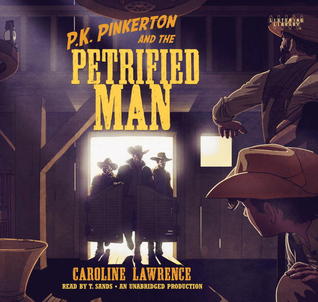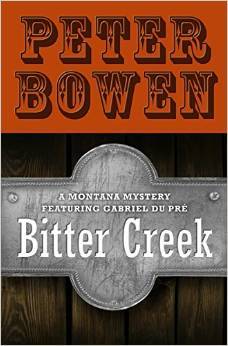This week's
Wendig Challenge was simple: write a car chase. That's it. Any genre, however you want to do it, as long as the whole point of the story is a car chase. Naturally, I didn't do it the usual way. He gave us 2000 words; I was merciful and stopped at 1260.
Occupational Hazards
Hank and Aleysha studied the evidence they’d gathered to date.
“I don’t think it’s enough to satisfy the police, let alone a lawyer,” Hank said.
“It has to be enough! I don’t think there’s any more to be had!”
“There is one way.”
Aleysha considered the documents in the case one more time and tried to pretend he hadn’t spoken. The silence grew. “It’s too dangerous,” she said.
“It's too dangerous to leave this guy on the loose. He’ll do it again. You know he will.” Silence. “If we can spook him into acting, we’ll have him,” Hank urged. “I’ll even bring in the cops to do the arrest.”
“Good idea.” Her sarcasm was wasted on him.
#
The plan was simple enough. They would leak their discoveries where Carl “The Cooler” Swenson would hear of them, and he’d come after them. He’d cooled enough enemies in a permanent sort of way that they knew he’d do it. They just had to be sure Swenson got wind of it at the right time, so they could be ready, as they had no desire to be his next victims.
By the time they were done—with Officers Smith and Jones at the table, at Aleysha’s insistence—their plan was bullet-proof. Keenly aware that she and Hank were not, Aleysha put the officers on speed-dial. Then they just had to wait for Monday.
Carl the Cooler didn’t wait for Monday, however he got the info. He came for them on Sunday, and not only were the officers not in place, but Hank and Aleysha found nothing between them and the killer but a bit of lycra.
It had been a good day for a ride. They’d looped well up into Marin, and as they pushed up the hill back on the San Francisco side of the Golden Gate Bridge, Aleysha congratulated herself on being fifty miles into a ride and still strong.
She and Hank saw the SUV at the same time, and recognized the driver.
“Step on it!” Hank urged. Both stood up on the pedals, topped the rise, and hooked a sharp left onto a tiny side road. Neither detective doubted for a second that Swenson had seen them, or that he had the info that had painted a large target on each of their backs.
Tired squealed behind them, accompanied by a chorus of horns. Swenson had pulled a U-turn in the middle of the busy Presidio road, indifferent to horns and cursing pedestrians alike.
Aleysha rode with her phone docked on the handlebars, serving as a GPS route tracker. She took a hand from the handlebars for long enough to punch a button and bring up phone mode.
“Call Officer Smith!” she ordered, and managed prayers to four deities as the phone rang.
No answer.
“Call Officer Jones!” She started in on some more gods, and they sped wrong way down a fortunately empty road.
They swung their bikes onto a path that cut off a loop of the road, Hank checking behind them. “That might lose—no, dammit! There he is!”
“Cut down through the construction zone,” Aleysha yelled, just as Officer Jones picked up.
“Aleysha? Is that you? What’s going on?” He sounded Sunday-afternoon sleepy.
“Swenson’s on to us. He’s after us now in a black SUV, license unknown. In the Presidio, headed for Crissy Field. We’re on our bikes.”
“On our way!” Jones sounded awake now. He didn’t need to ask if they needed backup. “Leave the line open.”
She didn’t have a hand free to end the call anyway. They were plunging down the hill toward at a reckless speed, and the ruined pavement in the construction zone under the new bridge required both hands on the grips. If they could just make the Field before—No! Another black SUV blocked the street ahead. Hank pulled a hard right under the bridge, skidding around the corner. Aleysha followed, and they bounced past some bizarre equipment, and across the torn-up ground.
“We can do this if they don’t start shooting,” Hank panted.
A drop-off put them back on pavement, and Aleysha nearly crashed when she hit bottom, skidded again, and righted herself to keep going. Amazingly, the bikes held up to the abuse. A moment later her mind registered the flat crack of a shot and the sound of a bullet that had whined just over her head when she dropped.
“What that gunfire?” Jones’ voice asked from the phone. She heard a siren in the distance, echoing the one heard from his end of the call.
“How long?” She gasped, ignoring his question. He could tell gunshots when he heard them.
“Two minutes. Can you take shelter?”
“No!”
“We need people. Traffic,” Hank yelled from in front of her. “Head for Marina.”
They blasted straight across the road and onto Mason, pushing hard up the field. Aleysha wished she’d not ridden so hard all day. She didn’t have much left for this kind of speed. Another bullet from up the hill, and the sound of a motor screaming its way through the gears, proved a good incentive to work out harder. Heads down, she and Hank swerved onto the bike path, he in front pulling, and she using her extra breath to scream at people to get out of the way and take cover.
Now Marina was in sight, with its thicker traffic. If only the light was right…
The shooting had stopped. Swenson wasn’t protecting innocent bystanders, they could bet. He believed bullets weren’t needed. Gasping for breath, Aleysha glanced over her shoulder and screamed. Both SUVs were gaining fast, and headed straight for them, ignoring the curb between street and path. They weren’t going to make it.
“Hard left!” She screamed, and Hank instantly turned down another sidewalk. No, not a sidewalk. They bounced across a bit of lawn past the Beach Hut, picked up a road, and gained speed. The SUVs went around by the road, and nearly cut them off, hotly pursued now by the police.
Hank and Aleysha put on a burst of speed, and only then realized they were on the breakwater and fast running out of road. Hank spotted an open gate, turned, and they raced down a dock. The SUV couldn’t follow, but the thugs and their bullets could.
The cyclists skidded to a halt, and didn’t stop to check what Swenson and his thugs would do. Flicking loose from their pedals, Hank and Aleysha dove from their bikes straight into the harbor. The water was ice cold, murky, and no kind of shelter. But—“Over there!” Hank called, and they struck out for the largest yacht on the outer line of boats.
Gasping for air, Hank and Aleysha clung to the swim ladder of the rear of the “Mary Roamer,” the end away from the land, and listened. A dozen sirens now converged on the docks, and a volley of gunshots died away to silence. The detectives looked at each other, waiting.
They heard the officers calling for them and, exhausted, themselves up onto the yacht, ignoring the indignant gasps of the nude sunbathers on the deck. They crossed over to the dock, and Smith ran up to give them a hand down.
“You two okay?”
They nodded, too exhausted to answer. Then, “Oh shit, the bikes!” Hank yelled.
Amazing, Aleysha thought. Who would’ve believed he could still run like that? And in his bike shoes. She watched in awe as he tackled and sat on the would-be thief, barely breathing hard. Now that was fitness.
©Rebecca M. Douglass, 2015




















.jpg)
